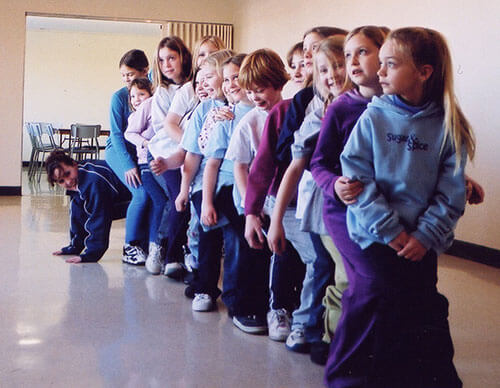By Lisa Brown
Q. How can I get my daughter to be more aggressive during ringette provincials? She’s talented, but sometimes she’s passive when she should just go for the ring.
A. This is the question I’m asked most often by ringette parents.
I love the question because it goes right to the heart of why we play: to develop confidence by mastering challenges.
If your daughter is playing passively, there are 3 possible reasons why.
- She is nervous and wants to play it safe for awhile;
- She fears she doesn’t have the speed or skill to beat her opponent; or
- She has been negatively affected by a coach, teammate or parent in her competing environment
Underneath these 3 reactions is fear: fear of choking, fear of failure, and fear of rejection.
Your job as a parent is to help reduce these fears in your daughter so she can excel.
Based on my experience as a ringette player and coach, here are some Do’s and Don’ts you can use to help your daughter stop playing scared and start playing smart.
Some of them may surprise you:
Do’s and Don’ts for Ringette Provincials
DON’T
- Tell your daughter to be more aggressive. If your daughter is playing passively, trust me, she knows it. If you tell her to play more aggressively, she will assume that you don’t approve of the way she is playing, and her anxiety will skyrocket. Or, she may take your advice and try to play the way she thinks you want her to – only to take her game to the other extreme and end up in the penalty box!
- Correct her on-ice mistakes, even if it is constructive criticism. If she’s playing passively, you can bet that she’s already criticizing herself in her mind. In fact, her self-criticism may be the reason for her passive play in the first place. If she gets criticism from you, this will increase her fear (not reduce it).
DO
-
- Listen to your daughter if she talks to you about any negative emotions she is feeling. You can show you’re listening by not interrupting her when she’s speaking, acknowledging what she’s saying with responses like “mhmm” or “of course”, and by paraphrasing what you understand she’s said back to her.Example: She says, I worked so hard to get good shots away but I just couldn’t get a goal.
You can say, “Yes, you’re taking really smart shots, but just can’t get a break”, and show that you really understand her frustration. You show her that you see her doing good things on the ice, and empathize with her frustration at the same time.
- Let your daughter know that it’s okay to feel afraid, disappointed, or frustrated about ringette. The more she accepts her feelings, the faster they will fade away from her mind. The easiest way to do this is to agree with her feelings, followed by a specific compliment.Example: She says, I’m so mad we lost.
You can say, “Of course you’re mad. Losing hurts. It’s perfectly understandable. You know what I noticed, though, is that you made really smart cuts to get open all game. That was terrific.”
- Suggest to your daughter that she focus on what she CAN control. While your daughter cannot control things like scoring or stopping goals, she can control things such as:
- Where she tries to shoot from
- How fast she accelerates when she has the ring
- How vocal she is on the ice
- Listen to your daughter if she talks to you about any negative emotions she is feeling. You can show you’re listening by not interrupting her when she’s speaking, acknowledging what she’s saying with responses like “mhmm” or “of course”, and by paraphrasing what you understand she’s said back to her.Example: She says, I worked so hard to get good shots away but I just couldn’t get a goal.
When talking to your daughter before or after the game, try to limit your coaching only to parts of the game she can control.
Example: “Honey, I notice that when you explode with speed once you pick up the ring, nobody out there can catch you. Why not make that your goal today?”
(Note: make sure she is in a frame of mind to be coached before you say this. Since you know her best, you’ll be able to read her mood quite easily).



